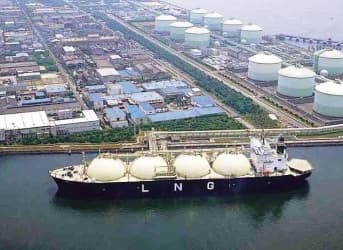In all the ink spilled over the American shale gas boom, the question of the United States becoming a gas exporter has been the silent partner of the exclamation that the U.S. would become energy self-sufficient.
According to a recent study by the International Energy Agency (IEA), created by the Organization for Economic Cooperation and Development (OECD) in the wake of the 1973-74 Arab oil embargo, production of shale gas from the US and light tight oil (LTO) from Canada are the only sectors of the entire global oil and gas market where the advanced industrialized countries of the West have hope of any economic growth.
Indeed, North America is now expected to account for over half of non-OPEC supply growth through the end of the current decade.
Related article: Time to Hop on the Natural Gas Train
In this context, the oncoming decisions by the newly sworn-in Secretary of Energy Ernest Moniz will have significant consequences. Moniz, a nuclear physicist by training and most recently director of the Energy Initiative at the Massachusetts Institute of Technology, previously served in the Office of Science and Technology Policy and later the Department of Energy under President Clinton.
A January 2012 study by the U.S. Energy Information Administration, a part of the Department of Energy, concluded that increased U.S. natural gas exports would lead to "higher domestic natural gas prices, increased domestic natural gas production, reduced domestic natural gas consumption, and increased natural gas imports from Canada via pipeline." Nevertheless, two weeks ago the Energy Department gave a Texas company permission for natural gas export, concluding (in the words of a recent Washington Post editorial) that "benefits outweighed the potential downside" in "every scenario the experts examined". In particular, "the effect on consumers would be relatively small, and U.S. manufacturers would continue to enjoy a competitive advantage relative to those in countries with higher gas prices".
At the same time, however, the Interior Department is proposing new federal rules for hydraulic fracturing, a key method for extracting oil and gas from rock formations. Those rules would mandate the permissible types of extraction tools and impose the requirement to disclose the chemicals used in the industrial processes as well as the methods for verifying that they should not contaminate ground water or the surface environment.
Related article: Cook on Offshore Natural Gas Rig is Paid $240,000 a Year
This is a political battle that will be fought out in the halls of Congress, as leaders of the Republican-majority committees in the House of Representatives are pointing out that the states have regulated hydraulic fracturing technologies for decades in the absence of nationwide rules. Less audibly spoken is that the conflict is really between the oil and gas industries on the one hand and, on the other hand, the green energy industries that have been especially favoured with subsidies for the last four years.
But if an export policy is adopted that pays particular attention to inexpensive exports for U.S. political allies overseas, then there is the possibility that North American energy production growth will have positive geopolitical effects in the world at large, for example in Europe, which seeks to increase the place of natural gas in its energy mix but is seeking to diversify its suppliers.
By. Robert M. Cutler


















